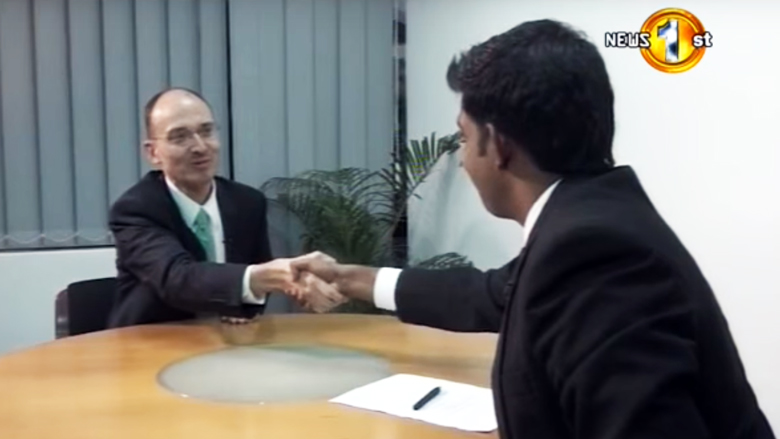Jan Walliser, the World Bank’s Vice President of Equitable Growth, Finance, and Institutions, visited Sri Lanka in early May and met with senior government officials, key private sector representatives, and members of the Right to Information (RTI) Commission.
These meetings were an opportunity to discuss the status of comprehensive fiscal, economic, and governance reforms aimed at boosting the economy and promoting equitable development.
The government’s development agenda intends to stimulate exports and attract more foreign direct investment, while creating more private sector jobs and enhancing value-added manufacturing capabilities.
To that end, Walliser said the government needs to prepare the economy and promote greater competitiveness.
Here’s an overview of Walliser’s insights on how successful reforms could help Sri Lanka integrate further into the global economy.
Building the Foundation for a More Competitive economy
Ideally, the skills and strengths of the Sri Lankan population can be leveraged to help the island nation become part of global value chains, which can lead to increased job opportunities.
Trade agreements can help reach that goal, Walliser pointed out, as can improvements to Sri Lanka’s business environment, such as providing better access to finance for the private sector.
International trade agreements like the Generalised Scheme of Preferences or GSP+, which offers substantial tariff reductions to ease developing countries’ exports to the European Union are valuable in the long term. Yet, strategic thinking is what is really required to build a stronger economy.
A spatial analysis of the economy would help identify gaps in infrastructure and set conditions for new industries to be set up in Sri Lanka
“Frameworks and infrastructure have to be in place,” said Walliser, noting the importance of enhancing some mega-projects while ensuring they be embedded in the local economy.
Investments in education should meet the evolving needs of the private sector to improve the chances of new graduates finding gainful employment.
Boosting service sectors will create more opportunities for Sri Lankans to receive training in fields like information technology or logistics, which are highly sought after by employers.
“Sri Lanka is well positioned to grab a larger share of the global market with the right supportive policies by the government,” said Walliser.
How Sri Lanka Can Better Integrate in the Global Economy
By improving the investment climate and strengthening its performance on international rankings like Doing Business, Sri Lanka can become more attractive to potential investors.
Walliser noted that a focused effort on investment promotion activities would also draw the kind of interest Sri Lanka seeks. Likewise, a dedicated tourism strategy mapping out infrastructure investment requirements and constraints could help build up Sri Lanka’s burgeoning sustainable tourism industry.

